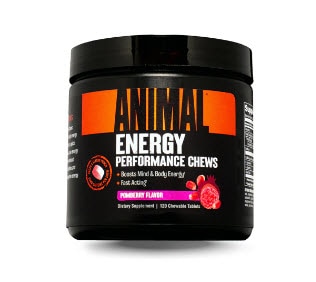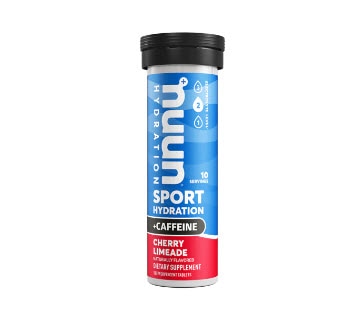Even those with seemingly boundless energy and enthusiasm for their workouts can experience the effects of a mid-afternoon slump or post-work crash, especially during the darker days of winter or when sleep is more elusive. Many people even struggle to feel energized and motivated to hit the weights or pavement on a good day. But skipping workouts can lead to even more fatigue and decreased energy and motivation, creating a cycle of inactivity and regret.
Caffeine is found in many plants like coffee, tea and cocoa, making it the most commonly used mind-altering substance worldwide. It’s widely used to boost energy levels, with about 94% of adults in the US consuming caffeinated beverages regularly, according to a survey.
Most commonly, caffeine is consumed in drinks such as coffee, tea or sodas, but over the last two decades, there’s been a growing trend of getting caffeine through energy drinks and pre-workout supplements.
Athletes use tools, such as food, drugs, body techniques, devices and mental strategies, called ergogenic aids. Tools such as these boost energy, enhance performance and speed recovery. When caffeine boosts physical performance, it’s considered an ergogenic aid. As with any of these tools, it’s wise to understand how to use them safely and effectively. For best results, including your safety, knowing how, when, and how much caffeine you should likely use to augment your training is essential. Learn how below.
What the Science Says About Pre-Workout Caffeine
The science is clear regarding the benefits of using caffeine to augment your training. A comprehensive review from the International Society of Sports Nutrition (ISSN) states:
- Caffeine supplementation boosts muscular endurance, strength, sprinting, jumping, throwing, aerobic and anaerobic activities.
- Aerobic endurance activities (such as long-distance running or cycling) see the most consistent benefits from caffeine, but the overall impact can vary by individual.
- Caffeine enhances performance, whether you are new to exercise or a seasoned gym-goer.
- Caffeine ergogenically boosts cognitive functions such as focus and alertness in most people, which can increase performance.
- Sleep-deprived people can gain mental and physical performance boosts from caffeine.
So, you can see how taking a pre-workout caffeine supplement is tempting, particularly when you’re feeling sluggish. Numerous studies have shown caffeine’s potential to enhance strength and power while delaying fatigue during exercise, but research has also revealed that after a while, your body can build up a tolerance to its effects. Luckily, the tolerance seems to reduce benefits relatively slowly and not completely, so you’ll still experience a boost even if you’ve been fueling with caffeine long-term. You can also reduce your tolerance for caffeine by being smart and intentional with your intake, using it only when you really need to, and limiting it during other times of the day.
How to Use Caffeine Based on Your Goals
You don’t have to overthink your caffeine use for the most part, but research points to specific types, doses and timings for particular types of training for the best results.
Cardiovascular Exercise
The ISSN says that varied caffeine sources such as gum, mouth rinses, energy gels and chews primarily improve aerobic exercise performance. So, these products may be best if you plan on doing long, leisurely runs, cycling or swimming.
Some studies suggest that using caffeine in chewing gum form could speed delivery to the bloodstream by absorbing it through the inner cheek area. These studies indicate that taking caffeinated chewing gum closer to starting exercise or during long endurance workouts may help the most, especially for well-trained individuals. Try a product containing caffeine and electrolytes to keep your hydration levels and energy in check during long hours on the bike or track.
Strength and Power Training
According to the ISSN, energy drinks and pre-workout caffeine supplements enhance both anaerobic and aerobic performance. Strength and power training, including bodybuilding, powerlifting, Olympic weight lifting and regular weight lifting in the gym, uses both anaerobic and aerobic effort.
The ISSN says that most of the research regarding using caffeine to boost strength and power includes drinks and pre-workout supplements containing taurine. Researchers suggest that performance enhancement in the studies wasn’t solely because of the caffeine content taken but also improved due to the presence of taurine. Taurine is an amino acid that supports heart, brain and nerve function and is commonly found in pre-workout supplements and other aids mentioned by the ISSN, such as B vitamins, citrulline and beta-alanine.
When and How to Take Caffeine
Timing your caffeine intake can be tricky, depending on how your body responds. Most experts recommend taking it 60 minutes before your workout, but depending on the caffeine source, this can differ. For instance, caffeinated chewing gums have a shorter activation time, so you may want to wait until you’re just about to get going or even take it during activity.
Scientists say the effective dose range is between 3 and 6 milligrams per kilogram of body mass. However, this will be different for everyone, with potential effectiveness starting at doses as low as 2 milligrams per kilogram. It’s worth noting that very high amounts (such as 9 mg/kg) commonly cause side effects but don’t add any further benefits.
Another factor to consider is how genetic variations affect caffeine metabolism and how your body responds. Your individual tolerance and reaction and aspects such as how regularly and how much you consume caffeine can affect how caffeine works for you and the potential side effects you might experience.
Consuming caffeine up to 400 milligrams daily appears safe without adverse effects. However, surpassing this amount increases the possibility of experiencing side effects such as:
- Upset stomach, nausea and other GI symptoms
- Insomnia
- Headache
- Increased heart rate
- Anxiety
- Jitteriness




